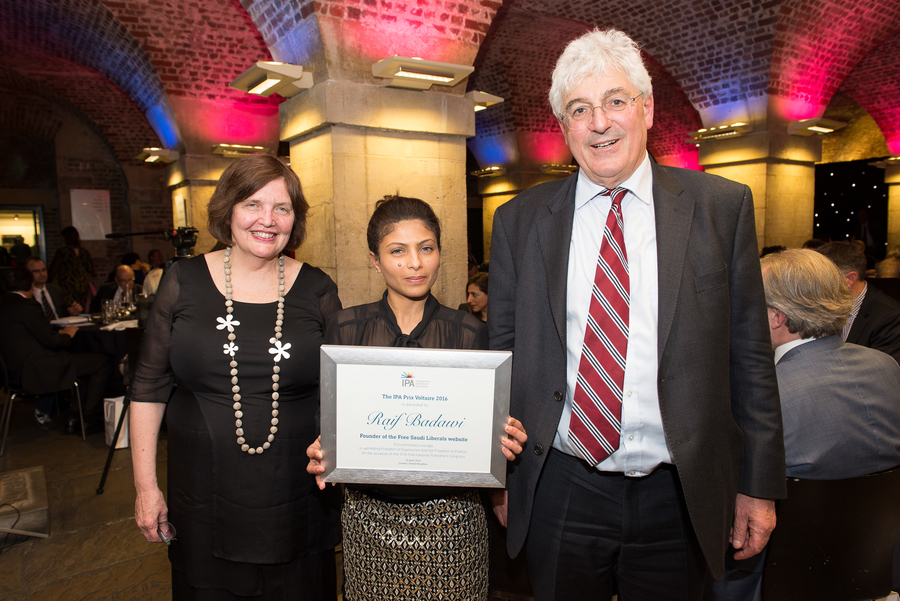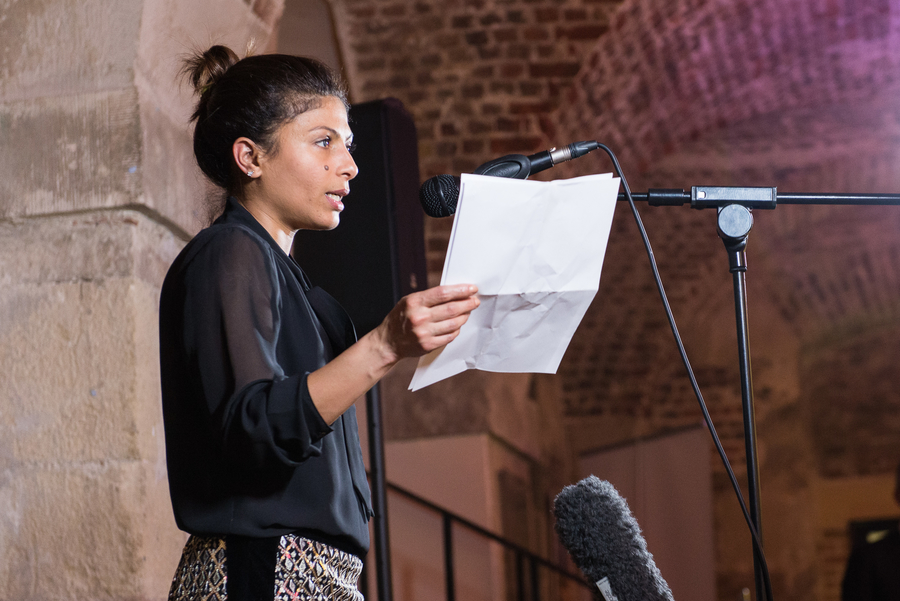
Can you describe life as a writer in a country where the freedom to publish is severely restricted?
It is the difference between freedom and fear. When I was writing my book with Andrea Hoffman, I was not afraid of telling the story as it happened – saying it as it is. I live with my children in Canada – a country that respects human rights and the freedom of expression. I knew I was safe. I would not have had done that, if I was living in Saudi Arabia, where expressing one’s views has to conform to the state’s and religious establishment’s worldviews. Where you can be punished, imprisoned, flogged and beheaded if you dare to diverge from their worldview.
Maybe because of that I admire Raif for his courage in writing his opinions and demanding reform in Saudi Arabia. He knew the dangers, but he also knew that for change and reform to happen in his country, someone must take the first step.
Raif showed immense courage in expressing his ideas in writing. What would you say to other young Saudis who are unhappy with the current human rights situation in their country and who want to be heard?
I would tell them not to wait for change to happen by itself. Do not wait for others to do the job. If you want change, then work for it – and work together through social media. Change and reform needs to be demanded – but I would insist on them to do that in a peaceful non-violent manner. I would also tell them not to give up.
We have seen lots of media coverage of Raif’s continuing situation. What is the latest information you have regarding his punishment and chances of early release?
Unfortunately, there is no news to report: after Raif’s transfer to a new prison in late December 2015, it became more difficult to communicate with him. He can still call me though. However, he, just like his fellow prisoners, endures an isolation imposed by the prison authorities. Books, newspapers, and papers are prohibited. Only Saudi Channel 1 is allowed. Also, Prof. Irwin Cotler, former Canadian Justice Minister and Nelson Mandela’s lawyer, has agreed to take Raif’s case. We have had hopes that Raif will be pardoned, but these hopes have been dashed repeatedly.
What are your plans for the ‘Free Raif’ campaign in 2016?
We have an international campaign that continues its activities and actions demanding Raif’s release. Every Friday Austrian and Norwegian campaigners hold vigils in solidarity with him. English PEN, Reporters Without Borders and of course Amnesty have all been very active in their activities to highlight Raif’s situation. The Raif Badawi Foundation is working tirelessly to raise Raif’s case and I am hoping that my book Raif Badawi: The Voice of Freedom will also help this campaign.
The Saudi Arabian Publishers Association was admitted to the IPA last year following a vote by the membership. What do you think about the IPA’s strategy of inclusivity over boycotting for members from countries with poor freedom of expression records, in particular Saudi Arabia?
Most of these publishers are working under very difficult circumstances in Saudi Arabia. I think boycotting them will only add to their difficulties.

